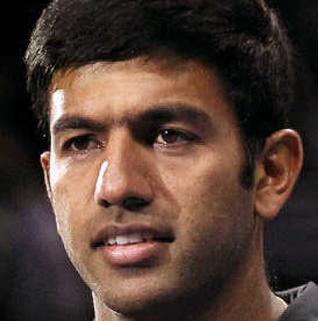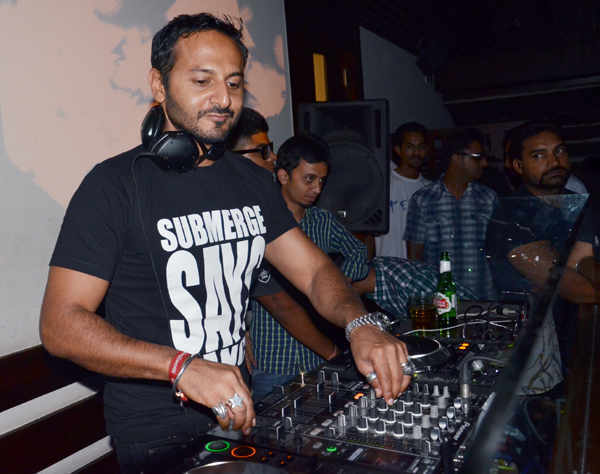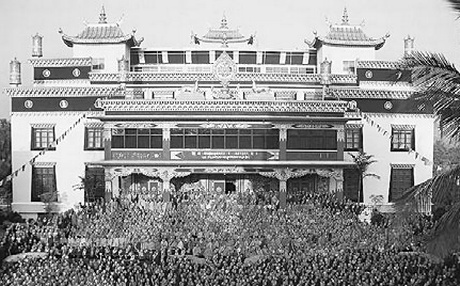Portland , (Menafn – Portland Press Herald – McClatchy-Tribune Information Services via COMTEX)
Coffee By Design has come a long way in the 19 years since co-owners Alan Spear and Mary Allen Lindemann took turns sleeping in the basement of their first shop on Congress Street.
Today, the business operates four coffee shops, employs 50 people and sells nearly a half a million pounds of coffee beans a year through nearly 300 retailers as far away as Las Vegas. The company’s gross revenues for 2012 were between 6 million and 7 million, Spear said. And the married couple, considered pioneers of Portland’s robust coffee scene and a catalyst for the Congress Street renaissance, are now on the verge of a major expansion project that is expected to take the business — and the local coffee culture — to a new level.
They are converting part of a 40,000-square-foot warehouse on Diamond Street in the burgeoning East Bayside neighborhood into what Spear describes as a “playground for coffee geeks.” Along with a fifth retail location and a larger roasting facility, the building will include space where people can learn about different coffees, observe the roasting and blending of beans and, of course, sample a variety of locally roasted coffees, says Spear. It will also have a barista training center and a showroom for coffee equipment.
Even as the company continues to grow, Spear said CBD, as it’s known, remains committed to providing quality coffees at a fair price to consumers and to coffee farmers, and to fostering community on both ends of the business.
“People think we’re this big coffee roasting company,” said Spear, while standing in the cramped, bustling roasting facility on Washington Avenue. “But we’ve stayed true to our original mission.”
While Diamond Street will be a place where people can “geek out” on coffee, Lindemann said it will also cater to artists, blue collar workers, students and others looking for a cup of coffee and place to kick back in a “warm, earthy” environment.
“There is a trend in our industry that is elitist,” Lindemann said. “We want amazing coffee to be available to everybody. …
“Our humble beginnings are still there.”
‘GOT THE COFFEE BUG BAD’
Spear and Lindemann were introduced to the specialty coffee movement while living in Seattle in the mid-to-late 1980s, when Starbucks was still a start-up.
Lindemann was a marketing professional trying to land a coffee company as a client. Each night, she would bring home market research, and Spear, a landscape architect, would pore through it.
Lindemann was drawn to one West Coast company in particular, the Torrefazione Italia, where coffee was served in chinaware by knowledgeable baristas in a relaxing environment.
“She would come back to the house with these amazing stories,” said Spear, who turns 52 on July 18. “It was more than just a cup of coffee.”
“He really got the coffee bug bad,” said Lindemann, 53.
Spear, whose favorite weekend pastime was hanging out in coffee bars, was struck by the complexities of a seemingly simple drink. His life was changed after reading the book “Coffee,” by Kenneth Davids. It explained the history of coffee, the origins of the beans and the farmers who harvest them, he said.
“I picked up that book and it changed my perception about what coffee could be,” said Spear, who has traveled to more than 50 coffee farms. “A good cup of coffee can change someone’s day.”
The couple moved back to the East Coast in the early 1990s with the dream of opening a coffee cart or kiosk in a major office building. They spent a year in Burlington, Vt., and six months in Providence, R.I., looking for a location, but to no avail.
“It was getting rejected by everybody,” he said.
The couple would visit friends and family in the Portland area. At the time, Lindemann said the commercial vacancy rate along Congress Street was 40 percent. When a salon space at 620 Congress St. became vacant in what was unofficially referred to as the pornography district, the couple persuaded the landlord to give them a shot.
“That neighborhood just spoke to us,” Spear said.
The couple had saved 10,000 to put toward their business and borrowed another 20,000 from a bank. They got an additional 15,000 loan from a friend of a friend, who was impressed with their passion and business plan.
“I had the money at the time and I really wanted to help them,” said John Russell, an entrepreneur who now lives in Connecticut. “I knew they were going to be successful. I kind of saw the coffee thing coming. I believed in it.”
IN THE EARLY DAYS
Coffee by Design opened its Congress Street location on July 1, 1994. The couple’s business plan anticipated 25 customers a day.
Instead, they got 250 — a number that Spear says was driven by the fact that tickets had just gone on sale for a Bob Dylan show at the newly renovated State Theatre nearby.
Business has been booming ever since.
Even with a part-time worker, Spear and Lindemann each worked 120 hours a week in the early months. They had no apartment, opting to stay with family. But in reality the couple lived at the coffee shop for four months, taking naps in a sleeping bag on a homemade shelf in the basement during the downtimes.
“We were there all the time,” said Spear, who was the only trained barista at the time.
The shop became a hub for all walks of life — artists, students and business people. Lindemann said the company was an early and vocal advocate for equality, and for supporting local businesses.
The couple opened a cafe in Monument Square in 1996. The business struggled to get off the ground, so the couple licensed the location to another owner. But they weren’t happy with the way it was being run, so they bought the license back, and vowed that any business with the CBD brand would have to meet certain quality standards.
“That was a learning moment,” Lindemann said.
Now, anyone serving CBD coffee by the cup must be trained by Spear himself.
“I don’t want to be a coffee dictator, but I want people to prepare it well,” joked Spear.
In 1998, the couple purchased a building on India Street, where they first began roasting their own coffee beans. Within three months, Spear was roasting all of CBD’s coffee.
Two high-end restaurants in Portland — Fore Street and Street & Co. — became CBD’s first wholesale clients that same year. Spear delivered coffee on his mountain bike with a small trailer.
Spear said he won the account after a four-hour tasting session and conversation with the chef about the best way to finish a meal. He now makes proprietary blends for these and other select restaurants and cafes.
“I am thrilled to have Alan’s coffees. (He’s) a great roaster — one of the best I know,” said Sam Hayward, Fore Street’s celebrated chef. “I buy his coffees pretty much exclusively for my own home because I love them so much.”
COMMUNITY-MINDED PHILOSOPHY
Russell, the investor, said the couple’s business acumen wasn’t the only thing that made him a believer. “They do it with heart, which is what I always liked,” he said.
Spear is the coffee guru, while Lindemann oversees efforts to ensure the company contributes to the community by supporting local artists and businesses.
She said the couple’s artist friends had been hit particularly hard economically in the 1980s, so the couple wanted to support the arts. They began by holding regular art showings by local artists in their Congress Street coffee shop and became active in efforts to establish the Arts District, revitalize Portland’s downtown and launch the city’s Buy Local program. They’re also founding members of the First Friday Artwalk.
The couple commissioned a local artist, David Cedone, to paint a mural, using old photographs, in the Congress Street location that tells the CBD story. It is still there today.
Spear noted that with the Diamond Street expansion project, the couple are using as many local companies as possible, many of which are located in East Bayside.
In 1998, the company began awarding 1,000 to 2,000 grants to artists and small arts organizations by setting aside 1 for every pound of its best-selling “Rebel Blend” coffee sold.
Lindemann said the company solicits proposals and CBD staff considers the merits of each proposal and chooses the winners. About 25 groups have received funding since the program began.
Last year, CBD gave out at total of 6,000 in grants to three groups: Yes Art Works, which provides creative opportunities to people with mental and other disabilities; The Telling Room, a Portland nonprofit writing center for youth ages 6-18; and the Lewiston Auburn Film Festival’s student film contest.
And when it comes to the coffee itself, Spear says CBD will not buy coffee unless it is 100 percent traceable back to the source.
The couple visited their first coffee farm in 2003. That year, they also served as members of the International Jury at the Specialty Coffee Association of Panama’s Best of Panama competition and the Specialty Coffee Association of Bolivia’s Cupping the Mountain’s Peak.
Spear said all of their coffees are organically grown. Those that are certified organic are stored, roasted, blended and packaged according to USDA standards.
The company buys as much certified products — whether organic, Rainforest Alliance or Fair Trade — as possible, but also will buy noncertified products that are cultivated in accordance with those standards.
“Some farmers choose not to get certified because it costs them money,” Spear said.
In 2011, the couple donated 5,000 to a school for children with learning disabilities in Jardin, Colombia, so it could build a new kitchen.
They’re also committed to sustainability. CBD composts 100,000 pounds of coffee grounds and chaff annually and uses solar panels to power its Washington Avenue facility. Their new coffee roasters will be the most energy-efficient available, Spear said.
PIONEERS, EVEN TO COMPETITORS
Bob Garver, owner of Wicked Joe coffee roasters in Brunswick, credited CBD as being “a pioneer of sorts” for bringing quality, locally roasted coffee to the state.
Garver said he drinks his own coffees but that the quality of CBD’s coffee is proven by its customer base. “They have what appears to be a very loyal customer base, and that’s the best endorsement there is,” he said.
Joanna Morrissey and her husband, Cory, owned and operated Java Joe’s on Exchange Street in Portland for about seven years. The couple, who opened Java Joe’s shortly before CBD opened its first shop in 1994, decided to get out of the coffee business and sell the shop in 2001.
Morrissey also credited the couple with raising awareness — and consumer demand — for quality coffees in the state.
“The days of Mainers insisting on having quality coffee over the counter (are) here to stay, and it’s due largely to those two and their expert marketing and raising awareness about what a great cup of coffee means and is,” she said.
Morrissey also credited the company’s commitment to the well-being of its coffee farmers.
Morrissey said CBD’s products are “far superior” to other coffee roasters.
“(CBD) has figured out how to have their coffee in many different areas and somehow guarantee the taste and quality of every cup,” she said. “I honestly don’t know how they do it. It’s the secret to their success.”
Not everyone can sell CBD’s products.
Spear said wholesalers and by-the-cup sellers must undergo a training process to learn about the origins of the coffee and how to prepare it and serve it to customers. “When an account is set up, it comes with me,” Spear joked.
That’s exactly why Paul Harrison has served CBD coffee at the Little Dog Cafe in Brunswick since it opened nine years ago, despite efforts to get him to switch brands.
“They’re really partners more than just wholesalers,” said Harrison, who consults with the couple about potential new locations.
Harrison, who started going to Coffee by Design on Congress Street in 1995 when Lindemann and Spear were always behind the counter, credited the company with helping to turn around that area of town.
Meanwhile, Harrison said he was recently explaining to a customer about why his shop has been successful on Maine Street. It was the location, customer service and the space, he said.
Then a loyal but eavesdropping customer piped in.
“It’s the (expletive) coffee,” Harrison recalled, laughing. “He was right. We have a coffee that without question affects our customer flow.”
RELYING ON ORGANIC GROWTH
Like its coffees, Coffee by Design has been growing organically. It doesn’t employ a full-time salesperson to acquire new accounts.
“We don’t cold-call anybody,” said Spear. “It’s all word of mouth.”
Of course, it doesn’t hurt that so many people and publications — local and national — are so willing to sing the praises of its coffee, hipster culture and support of community organizations.
Last year, national publications piled on. Zagat’s named CBD one of the Top 10 coolest independent coffee houses in the U.S. The company was also singled out when Forbes named Downtown Portland as the 11th best hipster neighborhood in the U.S. and Travel Leisure named it the fifth best U.S. city for hipsters.
“For caffeinated hipster-watching, go to Coffee by Design, which first opened on the once-seedy, and now thriving, Congress Street, where you can sip the same java made for local foodie magnet Fore Street restaurant,” wrote Travel & Leisure.
The diversity of its customer base could be seen on a recent afternoon at the Congress Street coffeehouse. Well-heeled business people waited in line next to colorful tourists and hipsters while the eccentric tattooed and pierced baristas made their drinks and served them with smiles.
People in chairs huddled over laptops or chatted in small groups, while an elderly man mumbled and sang to himself in the corner. Above them hung colorful reduction block prints of coffee pots and French presses by Anna O’Sullivan.
Spear said more and more people are looking to carry the CBD brand. Last year, the wholesale business grew by 25 percent, he said. That was up from an 18 percent growth in each of the preceding years.
The company now has nearly 300 wholesale customers, about 75 percent of which are in Maine.
Spear said the company currently offers 35 different coffees and blends, excluding flavored coffee, from 17 countries.
For the last five years, CBD staff members have participated in a blending competition, with the winner’s blend being offered to customers.
DIAMOND STREET
Spear said the new facility on Diamond Street will be a “playground for coffee geeks.”
The roasting operation will be moved from Washington Avenue, where the existing coffee shop will remain open and expand.
At Diamond Street, connoisseurs will be able to order limited-edition roasts at the coffee bar and choose the brewing technique, including pour-over, French press and espresso.
They can participate in a “cupping event,” which Lindemann said is similar to a wine tasting. Participants can observe, smell and feel the freshly ground beans, and taste a variety of specialty coffees at different temperatures.
Housing the roasting operations on Diamond Street will allow CBD to quadruple its roasting capacity from 500,000 pounds a year to 2 million pounds. CBD will eventually feature cold-brewed coffees on tap.
Once the new facility opens later this year, Spear said that all coffee will still be roasted to order and mail orders will be shipped within 48 hours. There will be three assembly lines for packaging coffee — single origin, blends and certified organic coffees, which must be stored, roasted and packaged in accordance with strict U.S. Department of Agriculture standards.
Spear said he will also offer green coffee beans and home roasters to hobbyists.
Meanwhile, the flavoring of coffee will take place in a separate room, isolated by an airlock system to prevent cross-contamination.
The new facility will be large enough for guided tours of the roasting and blending operations. And it will function as a training center for Coffee by Design baristas and for wholesalers carrying the CBD brand.
Spear says the company has direct relationships with its coffee growers or co-ops, which have direct relationships to farmers from about 17 countries. The new facility will allow the farmers to come to Portland and give presentations to the company’s wholesale clients and public.
“Even if it is the best coffee I have ever tasted, if it doesn’t have traceability and a story, I won’t buy it,” Spear said.
Randy Billings can be contacted at 791-6346 or at:
rbillings@mainetoday.com / Twitter: @randybillings
Visit the Portland Press Herald (Portland, Maine) at www.pressherald.com Distributed by MCT Information Services
source: http://www.menafn.com / MENA – Financial Network / Portland – July 14th, 2013







